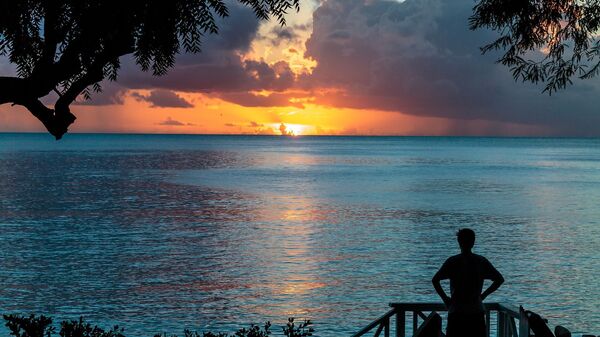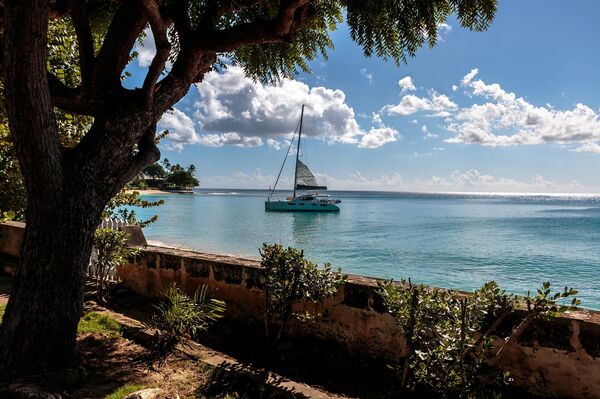The Prime Minister of Barbados, Freundel Stewart, is coming under increasing pressure to obtain a loan from the IMF.
The economy of the Caribbean island hit the buffers after the 2008 financial crisis, with tourism plummeting and the country's economy contracting by four per cent.
The global recession highlighted Barbados' over-reliance on the tourism industry and the island is showing little sign of bouncing back.
In March, Stewart rejected a call by the country's respected former Prime Minister, Owen Arthur, to seek help with the ailing economy from the IMF.
Stewart's Democratic Labour Party (DLP) was elected in 2013 and must hold an election in the next year.
Marla Dukharan, an economist with the Royal Bank of Canada who specializes in the Caribbean, said an IMF bailout was almost inevitable but she said recently: "In such situations, governments are typically less likely to exercise fiscal prudence and implement any major policy shifts that could possibly jeopardize their chances of staying in power."
See my latest on Barbados here: https://t.co/JvHDwxR1BL
— Marla Dukharan (@Marladukharan) April 11, 2017
In her report she found the Central Bank of Barbados's reserves fell by 29 percent to US$329 million in February 2017, enough to pay for two months of imports.
"This is the fastest pace of decline since November 2013, and the 21st consecutive month of falling reserves," said the report.
Foreign reserves declining rapidly in #Barbados https://t.co/3gxAnbJjnX
— Marla Dukharan (@Marladukharan) April 11, 2017
The opposition Barbados Labour Party (BLP) has claimed around four out of 10 young Barbadians are out of work and there is "growing hopelessness and restlessness among the country's young people" and "unprecedented levels of gun violence and gun crime."
There have also been water shortages on the island, hospital staff and resource shortages and the road network is said to be falling to pieces.
The recently fired Governor of the Central Bank of Barbados, Dr. DeLisle Worrell said the government needed to call in the IMF, but Finance Minister Chris Sinckler last week ruled that out before an election.
Shari Veronica, a Barbados-born blogger who fled the island in 2013 after being sexually assaulted, said the financial crisis was symptomatic of a wider malaise on the island which she claimed included a "misogynistic culture" with high levels of rape, incest and other abuses.
"Barbados is worse off than even the IMF knows. They are not providing the IMF with all the information it needs. Barbados is broke. Barbados is a crime syndicate. No-one in politics or banking are ever jailed for their corruption so it is an easy landscape for economic corruption," Veronica told Sputnik.
She said the BLP and the DLP were both to blame.
"There has always been corruption in Barbados. There are a lot of tricksters, thieves and liars."
Veronica claimed many of the problems affecting the mindset of the islanders were derived from their origins in slavery.
"Barbadians sit comfortably in slavery and the white man there is not giving up their power. There is no innocence, no sinners, just industry," she said.
"It's just the way it is in Barbados. They are accustomed to being slaves and they moved from full slavery into a servile industry, tourism. They did what came easy and what was normal — serving. Barbadians are 100 percent docile."
Barbados is a holiday destination for many wealthy British businessmen and in December 2015 the chairman of the UK Environment Agency, Philip Dilley, was criticized after he flew off to a vacation there while 60,000 people in the North of England were coping with severe flooding.
Dilley was forced to resign a month later.
Veronica said: "Barbados is worse off than even the IMF knows. They are not providing the IMF with all the information it needs. Barbados is broke."
The Barbados government was unavailable for comment.




